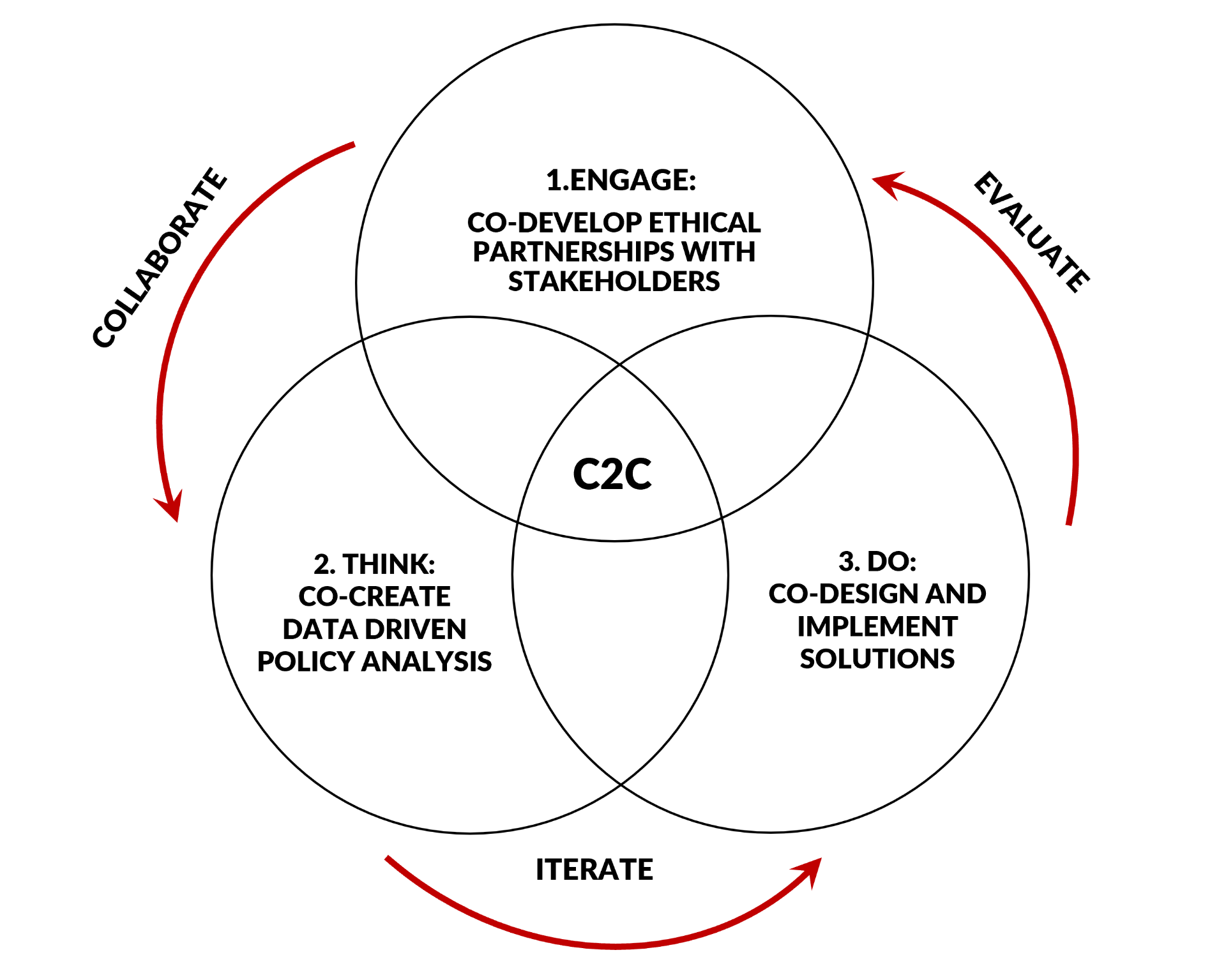COMMUNITY TO COMMUNITY: POLICY EQUITY FOR ALL
OUR ENGAGE-THINK-DO MODEL
THE CONTEXT
State and city agencies face urgent but long-standing policy challenges in areas such as housing, crime, opioids, and workforce development and need the expertise and resources to find solutions that are both systemic and equitable. If you are a practitioner seeking to be connected to a Northeastern faculty member, please click here.
Universities have the expertise to design and implement smart solutions, yet these local policy challenges do not fit neatly into disciplines nor semesters, so faculty need to work collaboratively across areas and in real-time with policymakers and communities. If you are a faculty member seeking to be connected to a practitioner or policymaker, please click here.

THE MODEL
To bridge the gap between research and practice, C2C fosters long-term, mutually beneficial partnerships with external stakeholders that promote the co-production of policy analysis and implementation to maximize societal impact. We start by building relationships through smaller scale projects to develop trust so that the long-term partnership is already in place when policy needs and/or funding opportunities arise across any number of policy areas (e.g. housing, healthcare, workforce development).

This proven model is composed of three basic components:
ENGAGE: We work in collaboration with external stakeholders from start to finish to ensure that what we are doing is timely and relevant. These are engagements that span multiple years to ensure that our work meets practical expectations and ethical imperatives needed to co-create and implement solutions to public problems. These collaborations inform the research to ensure that we take into account the local context, political feasibility, and public policy priorities.
THINK: We bring academic rigor to the table by co-creating rigorous data-driven policy analysis, drawing on the academic firepower of content experts within the university. This is high-quality research that meets all the standards of traditional scholarship and involves a research process is iterative to be able to accurately interpret findings based on local conditions and generate solutions that are feasible and equitable.
DO: We help our external partners put our solution into practice and evaluate whether it works. We co-create and help implement solutions based on the data and policy analysis, then we use our rigorous tools of program evaluation to understand whether it works, how it works, and for whom it works. After initial implementation, we collaborate to help our partner make program improvements.
In this way, we iterate and evaluate to move the needle on societal problems at the local level. See here to read more about research-practice partnerships.
CASE STUDY: SUMMER YOUTH EMPLOYMENT
- Building on a long-term partnership between Northeastern & the City of Boston, C2C researchers helped the City design four new tracks of programming during summer 2020 when many in-person jobs were eliminated. This included virtual internships with private sector employers as well as a learn and earn program where youth were paid to take courses offered at local community colleges.
- While other cities had to shutter their programs, Boston invested an extra $4.1M of Cares Act funding to preserve roughly 10,000 youth jobs and the earnings that their families rely on. Prior research had shows that the Boston summer jobs program reduces violent crime by 35%, increases the likelihood of graduating high school and attending college, and boosts subsequent employment and wages.
- During summer 2021, President Biden praised Boston’s innovative approach during the pandemic and urged other cities to similarly use their American Rescue Plan Act funding to expand summer jobs programs as a way to provide meaningful employment opportunities and combat youth violence.

